It may come as a surprise to learn that chickens will eat eggs out of the nest boxes, but who can blame them? Everyone loves fresh eggs! However, egg-eating is a habit that should be discouraged as soon as possible after discovery. Not only does it reduce the number of eggs available for collection, it is also a habit that is quickly learned by other flock members.
Many sources recommend culling (aka: physically removing or killing) an egg eating chicken from the flock, but I do not believe that culling an egg-eater is necessary. While it is a difficult habit to break, is not impossible to overcome with some easily implemented strategies.
EGG-EATING THEORIES
- Innocent exploration of a broken egg in the nest box. Reasons for broken eggs in nest boxes range from the presence of too few nest boxes, more than one hen jockeying for position in a nest box, bored chickens and broody hens intimidating laying hens and monopolizing the nests.
- Improper diet (wrong feed or too many treats/scraps, not offering oyster shell in a separate hopper, etc.) can result in a lack of protein, Vitamin D or calcium deficiency, leading chickens to seek out alternate sources of nutrition.
- Stress from being disturbed or startled in the nest box can cause breakage, creating a curiosity and the opportunity for the habit to begin.
- Exposed or brightly lit nest boxes may lead to nervousness and picking at eggs. Hens prefer dark, private locations for egg-laying.
- Thirsty hens may eat eggs for the liquid. (I think this theory is a stretch, but…it’s possible.)
IDENTIFYING THE CULPRITS
- The coop should be check for possible security. Predators such as rats, weasels and snakes are known egg thieves; even the smallest of holes in hardware cloth can allow an egg-eater access to the goods. If no egg thieves are identified, missing eggs are likely due to a flock member.
- Take note of activity around the nest boxes during peak egg-laying times; egg-eaters can be found loitering around them, looking for their next snack.
- Egg-eating is messy business; egg-eaters can usually be found with egg yolk on their beaks, faces or feathers.
Evidence that there is an egg eater is obvious when inspecting the nest boxes as there will be egg residue at the bottom. For nesting material, I use plastic nest pads for several reasons, including for ease of cleaning the nest boxes and identifying egg-eating chickens.
PREVENTION AND REHABILITATION
- Collect eggs frequently. If eggs aren’t in the nest box, they can’t be eaten.
- Provide at least one nest box for every four hens.
- Break broody hens that are not sitting on hatching eggs to free-up nest box space.
- Move broody hens sitting on hatching eggs to a separate location, away from laying hens to free up nest box space and avoid developing embryos becoming someone’s lunch.
- Ensure adequate nest box material, which will reduce the likelihood of eggs cracking on the hard floor. Plastic nest pads are much better choices than pine shavings or straw. Employ roll-out nests, which roll eggs out of the nest when laid, removing any temptation or opportunity.
- Provide layer feed for laying hens and limit treats (treats=anything that isn’t their layer feed, even things we consider healthy things) in order to avoid nutritional deficiencies.
- Supply oyster shell in a separate dish to strengthen eggshells of all layers and reduce the probability of weak-shelled eggs breaking accidentally.
- Allow hens to work, undisturbed in the morning, keeping busy children and other noises away from the hen house to minimize stress and nervous picking.
- Ensure adequate space in the coop and run for chickens that do not free-rage. Minimum recommendations are 4 square feet per bird inside the coop and 10 square feet per bird in the run. Provide confined flocks with boredom-busting enrichment activities.
My personal last resort is to segregate the egg-eater daily until the rest of the flock has finished laying eggs for the day. Worst case scenario, they eat their own eggs, but not anyone else’s. Egg-eating need not be cause for culling a chicken from a backyard flock.
Kathy Shea Mormino
Affectionately known internationally as The Chicken Chick®, Kathy Shea Mormino shares a fun-loving, informative style to raising backyard chickens. …Read on


shop my SPONSORS
It may come as a surprise to learn that chickens will eat eggs out of the nest boxes, but who can blame them? Everyone loves fresh eggs! However, egg-eating is a habit that should be discouraged as soon as possible after discovery. Not only does it reduce the number of eggs available for collection, it is also a habit that is quickly learned by other flock members.
Many sources recommend culling (aka: physically removing or killing) an egg eating chicken from the flock, but I do not believe that culling an egg-eater is necessary. While it is a difficult habit to break, is not impossible to overcome with some easily implemented strategies.
EGG-EATING THEORIES
- Innocent exploration of a broken egg in the nest box. Reasons for broken eggs in nest boxes range from the presence of too few nest boxes, more than one hen jockeying for position in a nest box, bored chickens and broody hens intimidating laying hens and monopolizing the nests.
- Improper diet (wrong feed or too many treats/scraps, not offering oyster shell in a separate hopper, etc.) can result in a lack of protein, Vitamin D or calcium deficiency, leading chickens to seek out alternate sources of nutrition.
- Stress from being disturbed or startled in the nest box can cause breakage, creating a curiosity and the opportunity for the habit to begin.
- Exposed or brightly lit nest boxes may lead to nervousness and picking at eggs. Hens prefer dark, private locations for egg-laying.
- Thirsty hens may eat eggs for the liquid. (I think this theory is a stretch, but…it’s possible.)
IDENTIFYING THE CULPRITS
- The coop should be check for possible security. Predators such as rats, weasels and snakes are known egg thieves; even the smallest of holes in hardware cloth can allow an egg-eater access to the goods. If no egg thieves are identified, missing eggs are likely due to a flock member.
- Take note of activity around the nest boxes during peak egg-laying times; egg-eaters can be found loitering around them, looking for their next snack.
- Egg-eating is messy business; egg-eaters can usually be found with egg yolk on their beaks, faces or feathers.
Evidence that there is an egg eater is obvious when inspecting the nest boxes as there will be egg residue at the bottom. For nesting material, I use plastic nest pads for several reasons, including for ease of cleaning the nest boxes and identifying egg-eating chickens.
PREVENTION AND REHABILITATION
- Collect eggs frequently. If eggs aren’t in the nest box, they can’t be eaten.
- Provide at least one nest box for every four hens.
- Break broody hens that are not sitting on hatching eggs to free-up nest box space.
- Move broody hens sitting on hatching eggs to a separate location, away from laying hens to free up nest box space and avoid developing embryos becoming someone’s lunch.
- Ensure adequate nest box material, which will reduce the likelihood of eggs cracking on the hard floor. Plastic nest pads are much better choices than pine shavings or straw. Employ roll-out nests, which roll eggs out of the nest when laid, removing any temptation or opportunity.
- Provide layer feed for laying hens and limit treats (treats=anything that isn’t their layer feed, even things we consider healthy things) in order to avoid nutritional deficiencies.
- Supply oyster shell in a separate dish to strengthen eggshells of all layers and reduce the probability of weak-shelled eggs breaking accidentally.
- Allow hens to work, undisturbed in the morning, keeping busy children and other noises away from the hen house to minimize stress and nervous picking.
- Ensure adequate space in the coop and run for chickens that do not free-rage. Minimum recommendations are 4 square feet per bird inside the coop and 10 square feet per bird in the run. Provide confined flocks with boredom-busting enrichment activities.
My personal last resort is to segregate the egg-eater daily until the rest of the flock has finished laying eggs for the day. Worst case scenario, they eat their own eggs, but not anyone else’s. Egg-eating need not be cause for culling a chicken from a backyard flock.



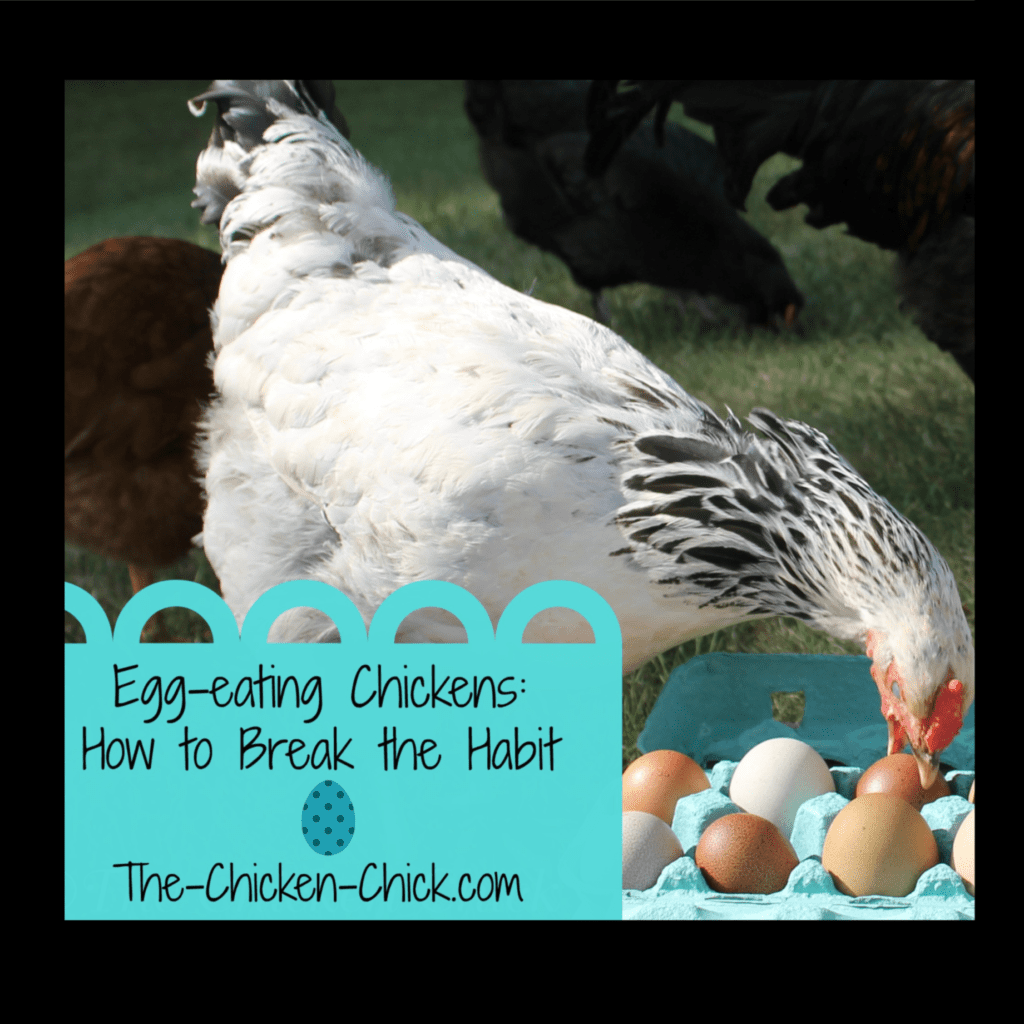
.JPG&container=blogger&gadget=a&rewriteMime=image%2F*)
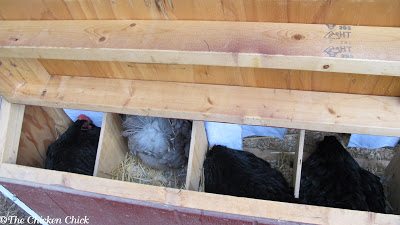
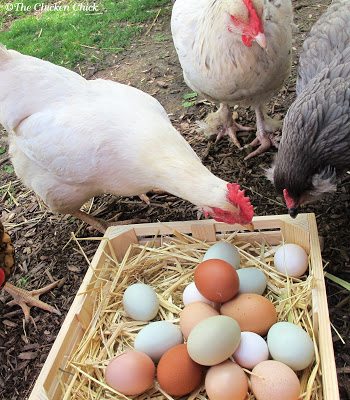

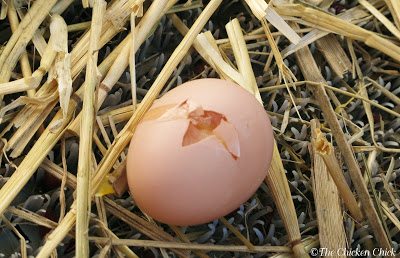
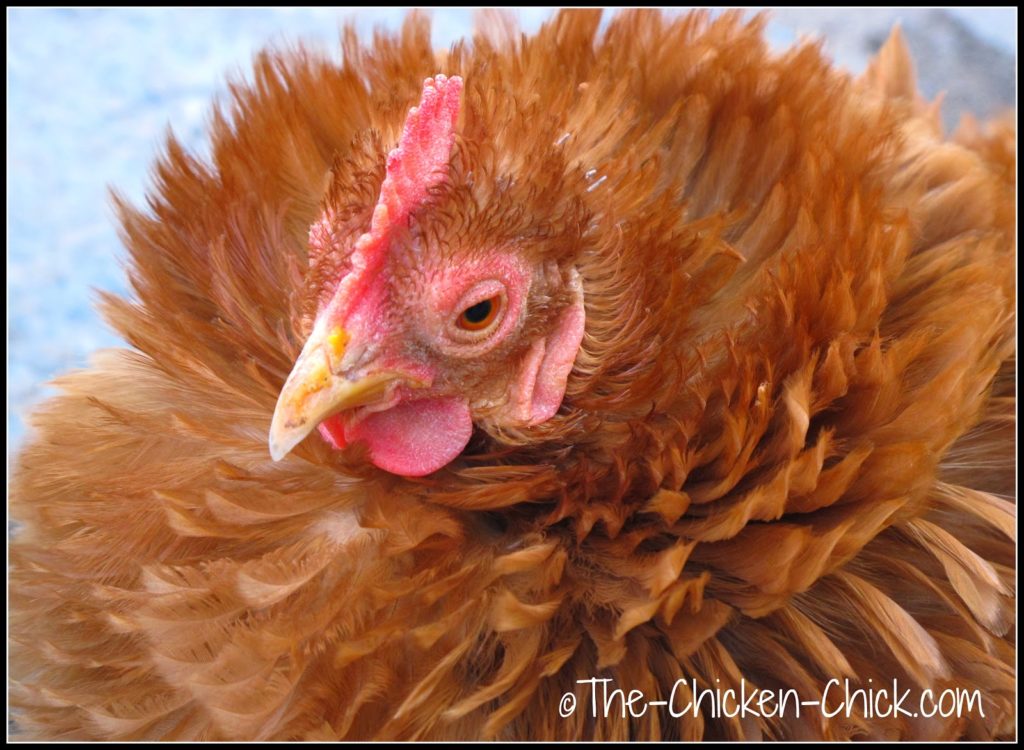

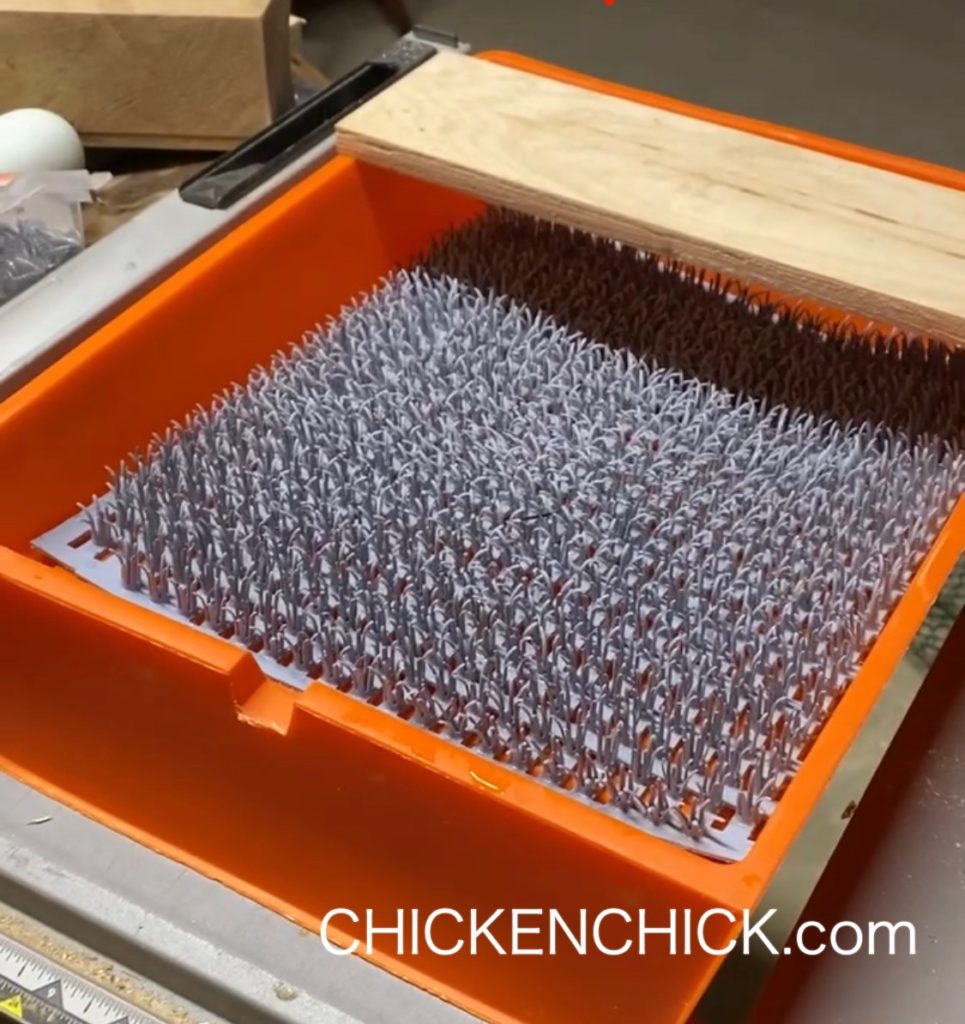
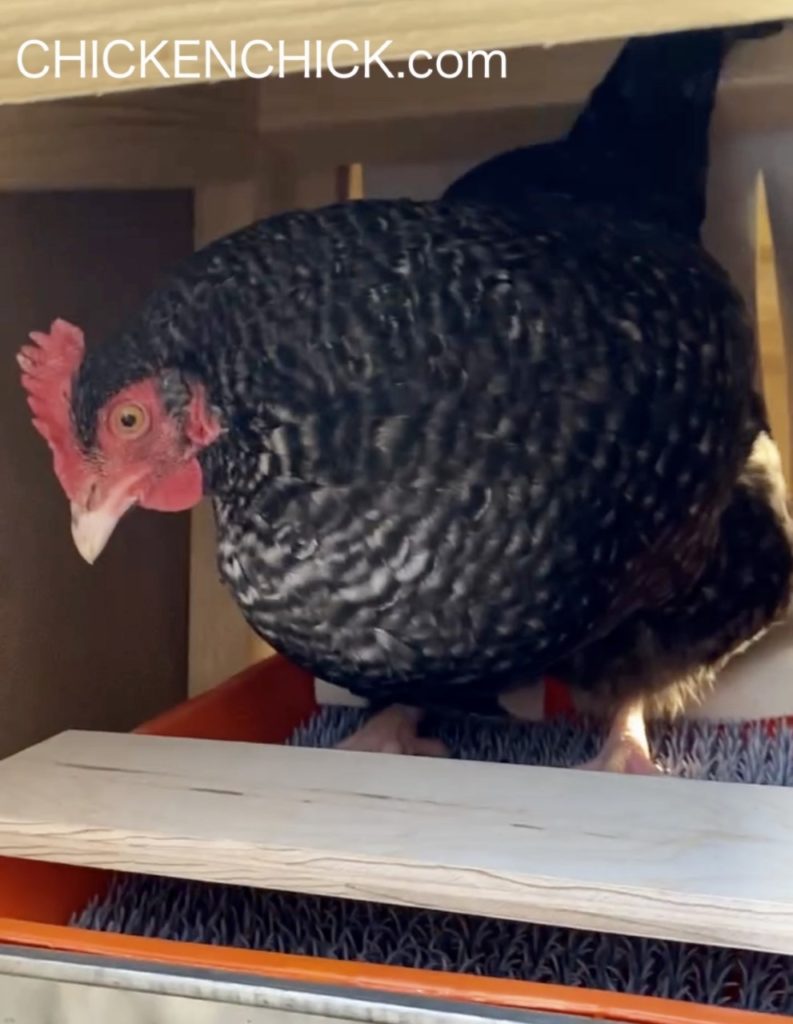
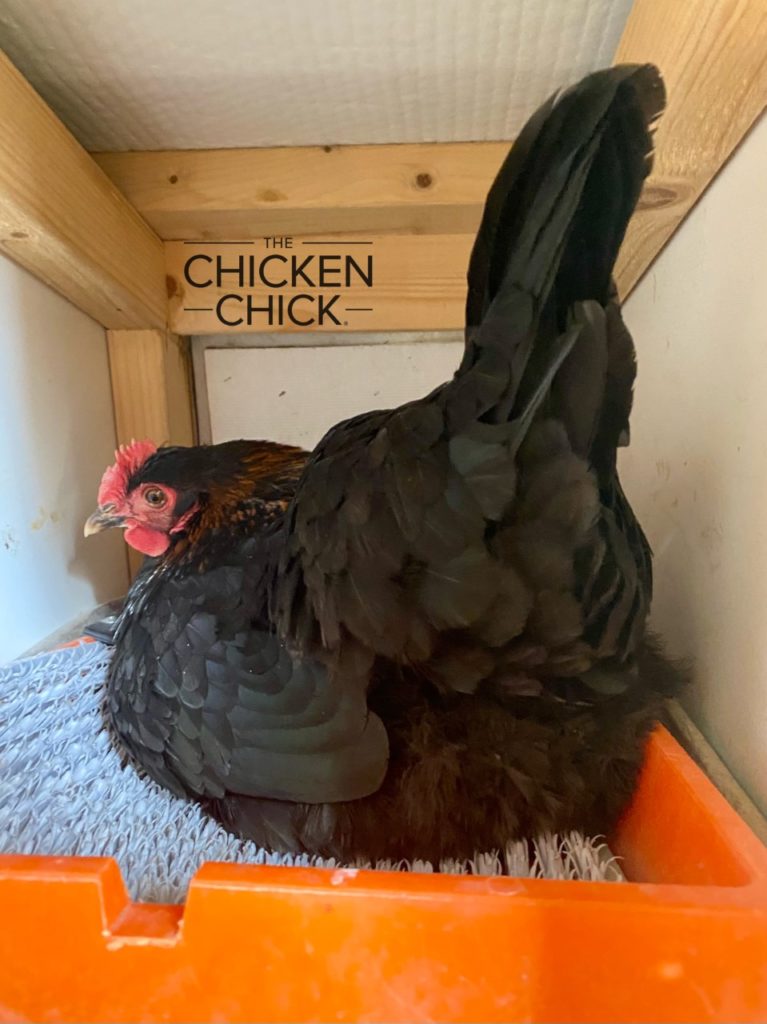
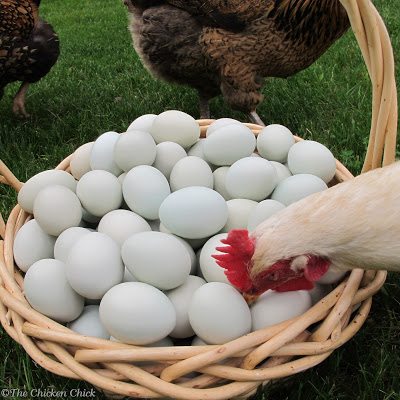
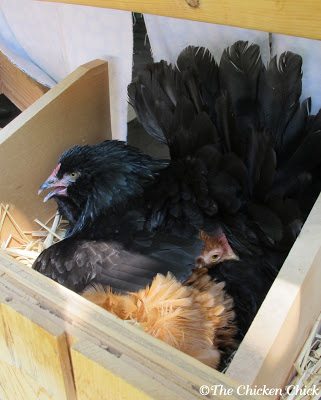

















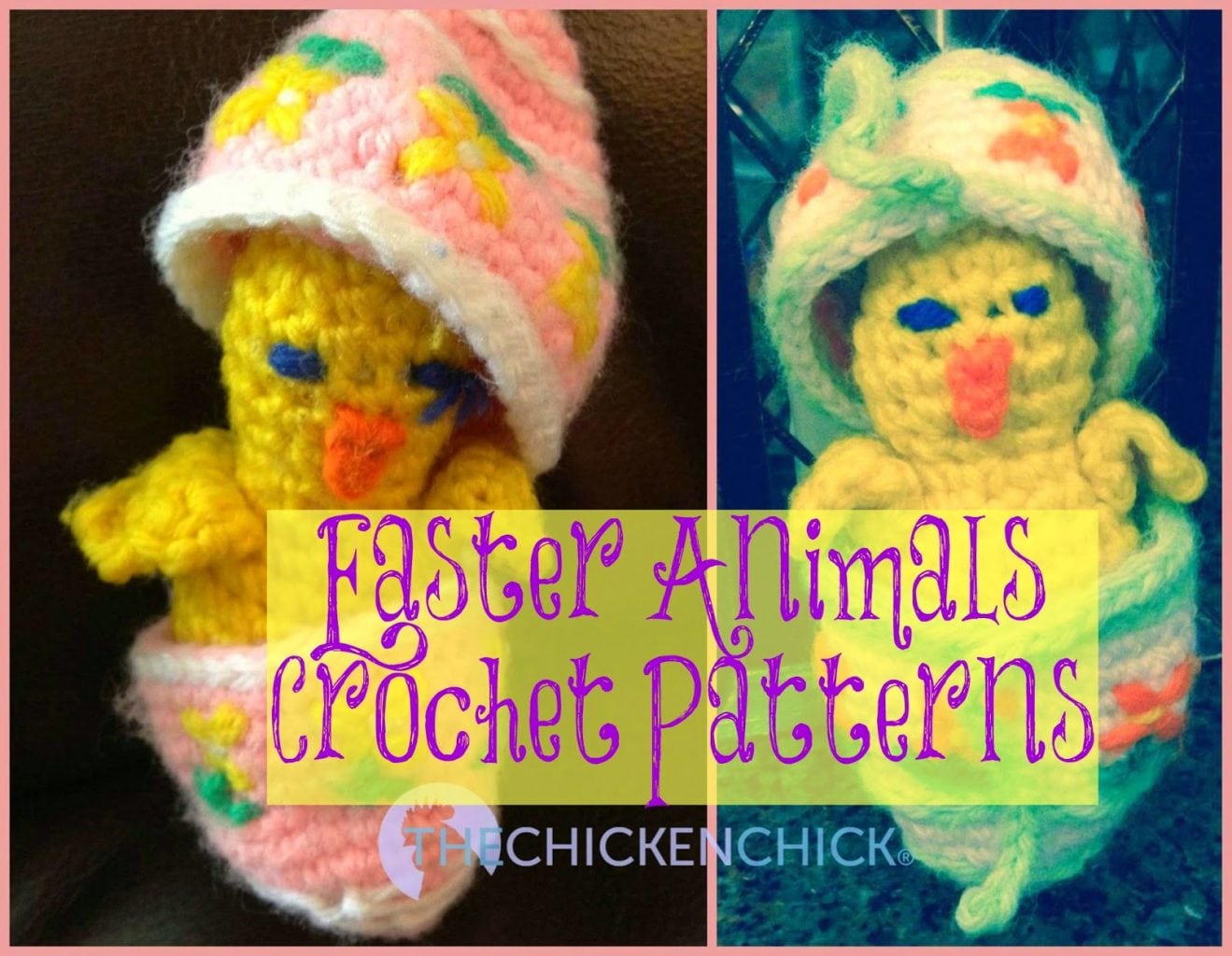






I love having a flock of girls own me. But was SO upset when I realized that there was an egg-eater! I did some research and totally fixed the problem within a week. I blew out an egg and used, not mustard, but Tobasco sauce, sealing it with Velveeta cheese, which I know chickens like. (Don't ask me HOW I know…) I had to repeat this only once. Problem solved!
Thanks for the 411. I think you found yellow snow on Rachel's beak not egg yoke. That little girl with her innocent face could never do any thing like that!
If your cousin's chickens are already living with your existing flock, you could have much bigger problems than egg-eating. Please read this to learn how you could possibly lose your entire flock for lack of quarantine: https://the-chicken-chick.com/2012/12/quarantine-of-backyard-chickens-why-and.html
Hi, Kathy ,I also have a hen that tends to lay an occasional "soft egg" while roosting. She is a BCM that is almost a year old. Apparently one of the other hens is finding the egg and is helping herself! I have found the remnants of the egg in the am coop clean up . I also use sand in the coop( got that from a wise chickenista!) the problem is I am having a hard time finding out which one is doing the eggs eating. No signs of yolk on the beak. Why would this hen lay an… Read more »
So happy you posted this today. I have just acquired my cousin's four chickens 5 days ago and realized today that they are all guilty of egg eating. I am beyond devastated, but am willing to attempt a rehabilitation. I am hopeful, yet painfully aware that this has most likely been going on for the past couple of months left unchecked. If I cannot rehab them, I will have no choice but to cull them to prevent the behavior from being taught to the rest of my flock :(